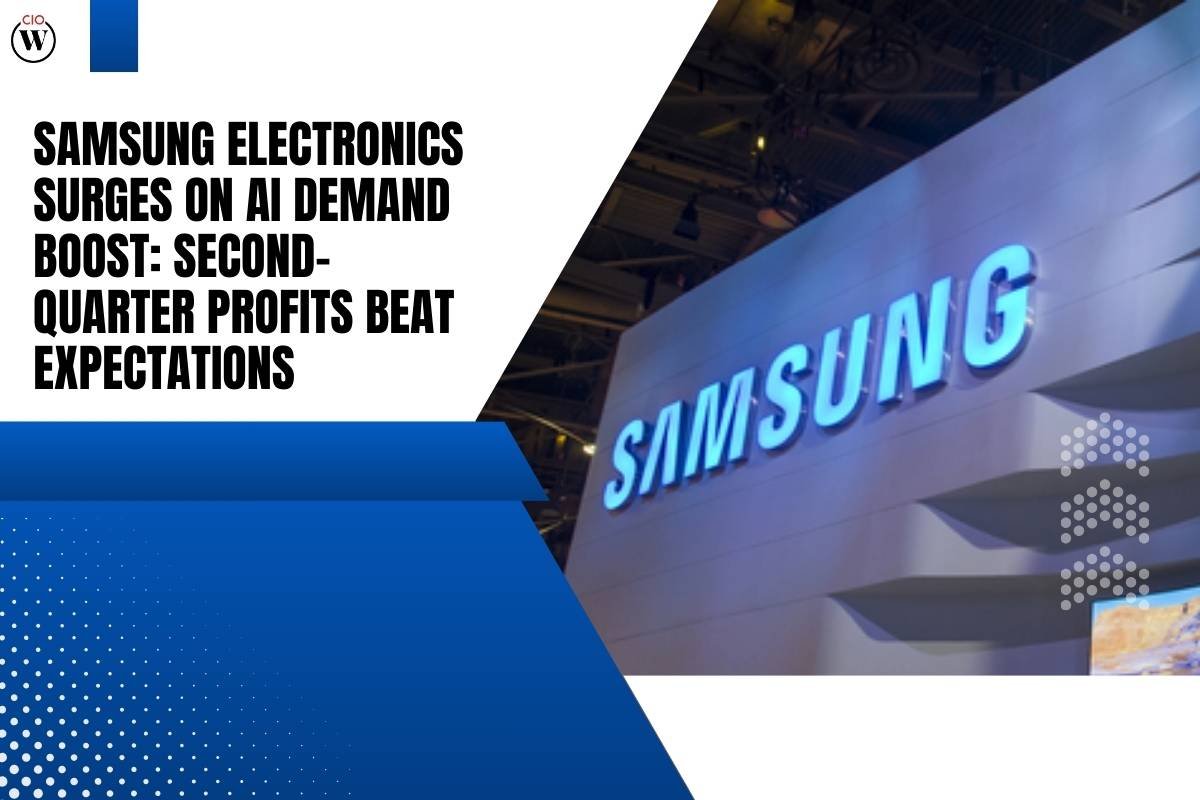Source – mobileworldlive.com
Samsung Electronics Stock Soars on Better-Than-Expected Profit Forecast
Samsung Electronics saw a significant surge in its stock price, reaching its highest level since January 2021. The South Korean tech giant reported expectations of better-than-anticipated profits for the second quarter, driven by soaring demand for artificial intelligence technologies. According to data from LSEG, Samsung shares climbed by up to 2.24% on Friday morning, peaking at 86,500 Korean won ($62.73). This marked a notable increase from the closing price of 84,600 won on Thursday.
In its latest guidance, Samsung projected an operating profit of approximately 10.4 trillion won ($7.54 billion) for the April to June quarter. This represents a staggering jump of about 1,452% compared to the same period last year, where the company reported 670 billion won in operating profit. The forecasted figure also surpassed the earlier estimate of 8.51 trillion won by LSEG analysts. Additionally, Samsung anticipates second-quarter revenue to range between 73 trillion to 75 trillion won, up from 60.01 trillion won recorded a year ago, aligning closely with the 73.7 trillion won estimate from LSEG analysts.
Recovery in Memory Chip Demand Drives Samsung’s Performance
The resurgence in business for Samsung, the world’s largest memory chip maker, can be attributed to the recovery in memory chip prices, bolstered by optimism surrounding artificial intelligence applications. The company faced substantial challenges in 2023, marked by significant losses as global demand for memory chips and electronics slumped in the wake of the COVID-19 pandemic.
Samsung’s memory chips are integral components in various consumer electronics, including smartphones and computers. The firm’s strategic focus on generative AI, exemplified by the Galaxy S24 Ultra smartphone equipped with AI-driven photo editing and online search features, has been pivotal in driving second-quarter performance amid stable mobile demand.
Challenges and Opportunities in AI Market Dynamics
Despite its optimistic earnings report, Samsung faces hurdles in its production of high-bandwidth memory (HBM) chips, critical for AI chipsets. Executives, such as SK Kim from Daiwa Capital Markets, highlighted delays in HBM production affecting supply to Nvidia, a major player in AI processors. These advanced memory chips have witnessed heightened demand amidst the AI boom, benefiting Samsung Electronics and SK Hynix, the top two memory chipmakers globally.
Reuters reported in May that Samsung has yet to qualify its HBM chips for use in Nvidia’s AI processors, although Samsung refuted these claims, affirming ongoing tests with multiple partners to ensure timely HBM chip supplies. Despite these challenges, Samsung’s robust market position and capacity have enabled it to capitalize on high average selling prices (ASP), thereby maximizing profits despite delays in advanced memory product launches.
Samsung Electronics is scheduled to release detailed second-quarter financial results later this month, providing further insights into its performance amid evolving market dynamics and technological advancements in AI.









